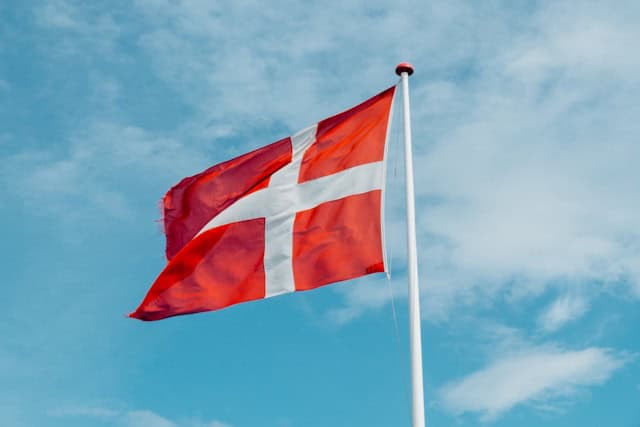Sustainability has long transcended the nuance as a niche concern that is intrinsically tied to compliance checkboxes. The world today is facing prodigious environmental challenges in areas including climate change, biodiversity, ocean health, and clean water. Earth’s warming is a potential trigger for sweeping changes in the natural world, affecting the physical environment as well as countless aspects of both human and natural systems. These major concerns are often interconnected, requiring collective action at any levels, from individuals and small businesses to monumental enterprises and governments.
Nevertheless, Denmark has listened, committing to sustainability to the point where it became widely recognized as a leader in green practices, persistently ranking high in multiple international ESG indices and comparisons. Danish cities lead by example, building world-class eco-friendly systems that prioritize a cleaner everyday life and encourage people to understand the concepts of sustainability and the impact of their usual choices. There’s a balanced path waiting for us when focusing on people, the planet, and profit, and apparently, Denmark has long acknowledged that.

Denmark Became A Trailblazer In Sustainability
Denmark has proven itself nothing if not persistent in matters of sustainability and the green transition, implementing climate action into the policy of its government through a binding climate act that ensures sustainability remains a fundamental factor in all future political decisions. This Danish Climate Act was passed in 2020 and has established an ambition mechanism that legally binds Denmark to ensure continuous action in reducing greenhouse gas emissions by 70% by 2030, surpassing the overall European Green Deal, which aims to cut CO2 emissions by 55% by 2030. The Danish government acknowledged that achieving these ambitious goals would imply countless challenges if not forming partnerships, adopting innovative solutions, and leveraging the latest technologies. Consequently, Denmark has formed 14 climate partnerships covering multiple sectors of the Danish economy. For instance, the 14th partnership focuses on sustainable entrepreneurship, spreading the idea that startups should be responsible corporations, paving the way towards the innovation needed for a greener future. With so many waste management services out there, such as Miltek, being environmentally responsible shouldn’t pose any problems.
In 2009, when sustainability was not even talked about that much, Copenhagen, the capital of Denmark, made headlines for its ambitious goal of becoming the first carbon-neutral city by 2025. Unfortunately, Copenhagen has seen numerous bureaucratic and financial obstacles, preventing the establishment of the carbon-capturing plant, a facility regarded as essential in reducing the last bit of CO2. However, Denmark remains devoted to its sustainable practices, moving its net zero target to 2045, aiming to reduce emissions by 110% between 1990 and 2050.
Denmark’s Commitment To Sustainability Further Explained

Denmark is actively pursuing a greener future, establishing ambitious climate goals, international collaboration, and energy sector transformation. Although forests cover a modest amount of nearly 15% of Denmark’s land, the Danish government aims to enlarge forested areas by 250,000 hectares. The plan includes planting 1 billion trees and converting farmland into forests and natural habitats, aiming to reduce emissions and create extended resilience for both the environment and economy. The government also announced that soon enough, farmers will have no chance but to adjust their usual practices to responsible actions, highlighting the year 2030 as a deadline. Livestock farmers will face devastating taxes if they do not reduce their greenhouse gas emissions from cows, pigs, and sheep. This rule also works the other way around, with farmers receiving compensation for adopting sustainable practices.
Furthermore, Denmark has initiated the 2030 Agenda for Sustainable Development, assembling an InterMinisterial Group to ensure smooth coordination among all relevant institutions and stakeholders. The Ministry of Finance is in charge of supervising the national implementation of the SDGs, of course, while relying on line ministries to design appropriate policies that address the SDGs. Denmark aims to prioritize opportunities that allow people to enjoy nature, promoting the protection of the marine environment while encouraging biological diversity.
Copenhagen Is The World’s Greenest City

Copenhagen has simply become an environmental fantasy, providing tourists with benefits they would have dares to dream about. Let’s picture the following scenario:
You’re a tourist visiting Copenhagen on a tight budget. You feel stressed and anxious just thinking about how to afford everything on your “To-Do” list, from museum tickets and meals to exhibitions and boat tours. While this could be a huge problem in places where you are entirely on your own, with no helpful alternatives, Copenhagen is widely recognized for rewarding eco-friendly practices. For example, picking a certain amount of trash or volunteering in an urban garden could get you free meals, museum visits, and kayak tours. This action of raising tourists’ awareness goes under the name of CopenPay, a global movement that has seen appreciation from more than 100 destinations worldwide. CopenPay runs from 17 June to 17 August, rewarding eco-friendly visitors with tickets for various attractions, such as The National Museum, Go Boat Copenhill, and the Kronborg Castle in Elsinore.
Moreover, Copenhagen is the city with the most significant number of cyclists, prioritizing funding for the city’s cycling infrastructure. Currently, Copenhagen displays 397 km of bicycle paths, cycle superhighways, and biked bridges, enhancing the safety and enjoyability of this eco-friendly alternative. Additionally, Copenhagen is actively investing in electric or hydrogen-powered cars, aiming to get to the point where 85% of the city is driving green vehicles.
It’s no wonder that Copenhagen is also a leader in renewable energy adoption, leveraging a plethora of wind, solar, biomass, and waste-to-energy systems. They utilize both solar photovoltaics and solar thermal technologies, establishing strong government policies and financial incentives to promote renewable energy adoption.
Overall, numerous Danish cities are taking significant action towards sustainability, implementing policies that promote sustainable urban development. They are adopting a “smart city” approach, struggling to overcome the ongoing challenges related to pollution, resource management, and constant innovation. This is what “leading by example” means: acting in a way that demonstrates the values you want others to follow.
